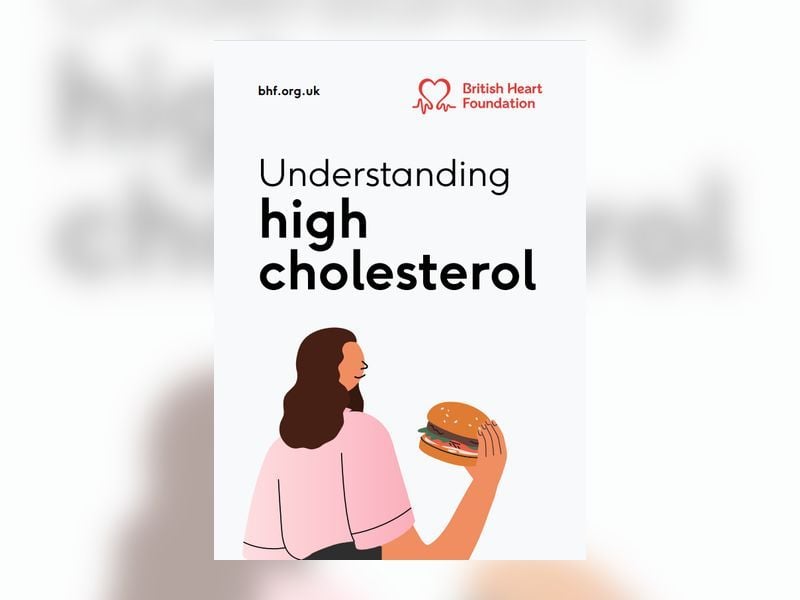1. What foods will make my high cholesterol worse?
Foods high in saturated fat and sugar can cause high cholesterol. The top sources of saturated fat in our diet are:
- fatty meats
- full fat dairy products like butter, cream, and ghee
- palm and coconut oil
- processed foods like biscuits, cakes, pastries and chocolate.
Eating too many sugary foods and drinks and refined carbohydrates can also affect your cholesterol levels. Refined carbohydrates have been processed and stripped of their natural fibre, minerals and vitamins.
The main dietary sources of refined carbohydrates and sugar are:
- white flour
- white bread
- low-fibre cereals
- white rice and pasta
- pastries
- sugary drinks
- crisps and sweets.
Some foods contain dietary cholesterol, but they do not make a big difference to the cholesterol in your blood. These are foods like eggs, some shellfish like prawns and crab and offal such as liver, liver pate and kidney. They are low in saturated fat and fine to eat as part of a healthy diet. It is more important to limit the amount of saturated fat you eat.
2. What foods should I eat to lower my cholesterol?
Too much saturated fat in your diet can raise your cholesterol levels, but a healthy balanced diet can help to lower them. Swapping saturated fats for unsaturated fats and eating more fibre can make a big difference to your cholesterol level.
Unsaturated fats
Unsaturated fats in foods like vegetable oils, nuts, seeds, avocado and oily fish are healthy fats that can help maintain healthy blood cholesterol levels. Try these swaps to help you reduce your saturated fat intake:
- swapping butter to vegetable oil spreads like sunflower, olive or rapeseed oil spreads
- switching whole milk to skimmed milk
- using natural yogurt instead of sour cream or double cream
- replacing regular mince with leaner, lower fat options
- swapping red or processed meat for fish, turkey or chicken without the skin, or plant-based proteins such as lentils, soya or Quorn
- switching your crisps for unsalted nuts or seeds
- using reduced fat cheese instead of regular cheese
- ordering less takeaways. Instead try our healthy fakeaway recipes for delicious heart-healthy options.
Fibre
Eating high-fibre food can also help to lower your cholesterol. Fibre helps reduce the amount of cholesterol that is absorbed into the blood stream from your digestive system (also known as the intestine). Some ways you can eat more fibre include;
- eating at least five portions of fruit and vegetables a day
- eating pulses such as lentils, beans and chickpeas
- snacking on nuts and seeds
- choosing more wholegrain foods, such as brown or granary bread over white bread and brown rice over white rice
- replacing sugary cereals with wholegrain options or oats.
Read more of our tips to eat more fibre
3. Can exercise lower cholesterol?
Yes, it can. Being active helps your body move the bad cholesterol (also known as non-HDL cholesterol) to your liver where it can be removed out of your system.
You do not have to join a gym or go on long runs if you do not enjoy it, just start by moving more every day. Many people find that being active improves their mood, gives them more energy and better sleep. You could try:
- taking the stairs instead of the lift
- a brisk walk instead of a slow walk
- doing two-minute bursts of jumping jacks several times a day
- yoga or pilates.
Get inspiration to stay active with 7 exercises you can do from home.
4. Does smoking increase cholesterol?
Smoking increases ‘bad cholesterol’ (or non-HDL cholesterol) and lowers ‘good cholesterol’ (or HDL cholesterol). This increases your risk of heart attacks and stroke.
Stopping smoking is one of the best things you can do for your cholesterol, your heart and your health. Within days, your health will begin to improve and within a year, your risk of heart disease will be halved.
If you’re struggling to stop smoking, talking to your GP is a great first step. If you’re in England you can call the NHS Stop Smoking Service on 0300 123 1044.
There are also free services in Scotland, Wales and Northern Ireland.
These services will be able to give you support including how to deal with nicotine cravings.
Read more about what smoking does to your body.
5. Should I stop drinking if I have high cholesterol?
Cutting down on alcohol will help your liver to work better at removing bad cholesterol. It may also improve your heart health in other ways by helping you lose weight and lower your blood pressure.
Our top tips for drinking less alcohol are to:
- try alcohol-free drinks like mocktails and alcohol-free beer
- set a weekly drink limit
- have a few days each week where you do not drink at all
- avoid rounds when you go out
- drink water or soft drinks (opt for sugar-free or diet drinks where possible) between alcoholic drinks to slow you down
- order a small glass of wine or half a pint of beer.
Read more about alcohol and your heart.



